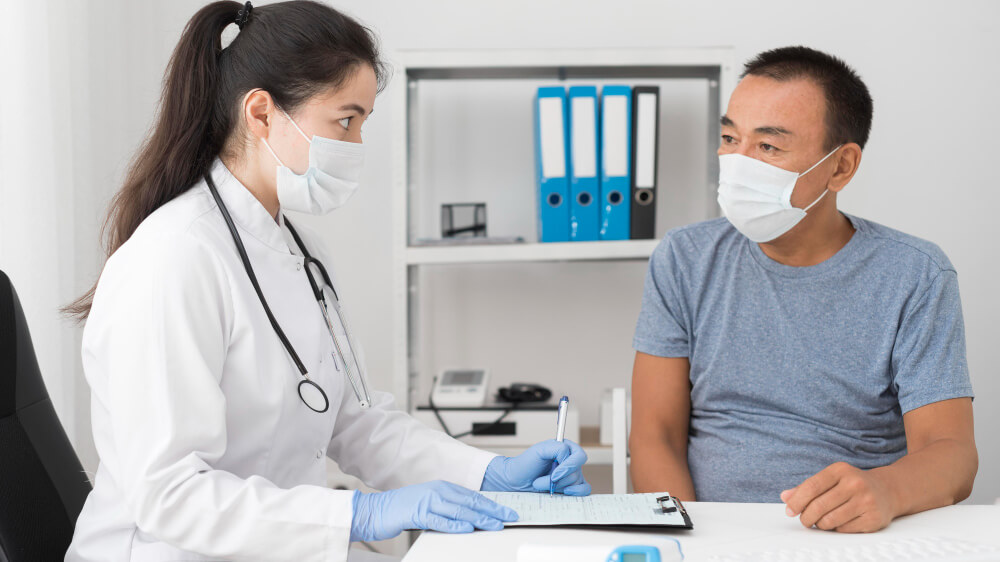Preventive Care: A Proactive Approach to Health
Preventive care is a proactive approach to healthcare that involves regular check-ups, screenings, and lifestyle modifications to prevent illness and promote optimal health. By prioritizing preventive care, individuals can reduce their risk of developing chronic diseases, detect health problems early, and improve their overall quality of life.

The Importance of Regular Check-ups
Regular check-ups with a primary care physician are essential for maintaining good health. These visits provide an opportunity to:
Assess Overall Health
- Vital Signs: Monitoring blood pressure, heart rate, and respiratory rate.
- Body Mass Index (BMI): Assessing weight and body composition.
- Mental Health: Discussing stress, anxiety, and depression.
Screen for Chronic Diseases
- Blood Tests: Screening for cholesterol, blood sugar, and kidney function.
- Cancer Screenings: Depending on age and risk factors, screenings for breast cancer, colon cancer, and other cancers may be recommended.
- Immunizations: Staying up-to-date on vaccinations to protect against infectious diseases.
The Role of Lifestyle Modifications
In addition to regular check-ups, adopting healthy lifestyle habits is crucial for preventive care.
Healthy Diet
- Balanced Diet: Consuming a balanced diet rich in fruits, vegetables, whole grains, and lean protein.
- Portion Control: Practicing portion control to maintain a healthy weight.
- Limit Processed Foods: Reducing intake of processed foods, sugary drinks, and unhealthy fats.
Regular Physical Activity
- Aerobic Exercise: Engaging in activities like walking, running, or swimming.
- Strength Training: Building muscle mass to boost metabolism.
- Flexibility Exercises: Improving flexibility and reducing the risk of injuries.
Stress Management
- Stress Reduction Techniques: Practicing relaxation techniques like meditation, yoga, or deep breathing.
- Adequate Sleep: Getting sufficient sleep is essential for overall health and well-being.
- Social Connection: Maintaining strong social relationships can reduce stress and improve mental health.
Common Health Concerns and Preventive Measures

Preventive care can help identify and address common health concerns early on.
High Blood Pressure
- Regular Monitoring: Checking blood pressure regularly.
- Lifestyle Modifications: Adopting a healthy diet, exercising regularly, and reducing stress.
- Medication: Taking prescribed medications as directed.
High Cholesterol
- Healthy Diet: Eating a low-cholesterol diet and limiting saturated and trans fats.
- Regular Exercise: Engaging in physical activity to improve cholesterol levels.
- Medication: Taking cholesterol-lowering medications as prescribed.
Diabetes
- Regular Blood Sugar Monitoring: Checking blood sugar levels regularly.
- Healthy Diet: Following a diabetes-friendly diet.
- Regular Exercise: Engaging in physical activity to improve insulin sensitivity.
- Medication: Taking prescribed diabetes medications.
The Importance of Early Detection
Early detection of health problems is crucial for successful treatment and prevention of complications. Regular check-ups and screenings can help identify potential issues before they become serious.
Early Detection of Cancer
Early detection of cancer through screenings can significantly improve survival rates.
Early Detection of Heart Disease
Early detection of heart disease can help prevent heart attacks and strokes.
Conclusion
Preventive care is a proactive approach to health that can significantly improve quality of life and longevity. By prioritizing regular check-ups, healthy lifestyle habits, and early detection of health problems, individuals can take control of their health and reduce their risk of chronic diseases. Remember, prevention is always better than cure.
Contact our preventive care services for adult healthcare (432) 322-8675 Or visit us https://sccodessa.com/
